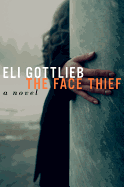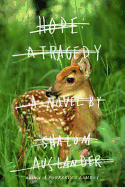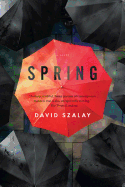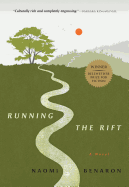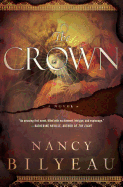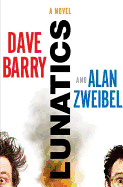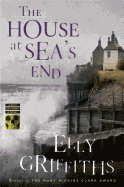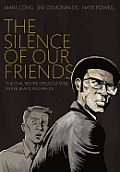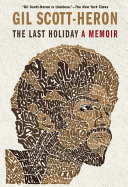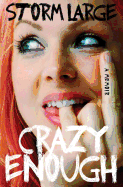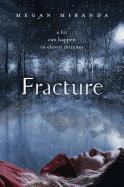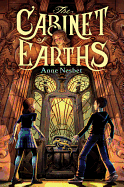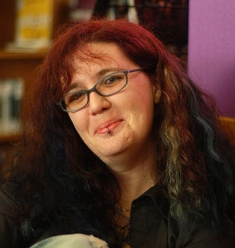 When I wrote Graveminder, I was caught off-guard by the surge of questions on "switching" from YA to adult. I was perplexed. I never set out to be a young adult writer initially--or an adult writer or a fantasy writer or... well, any type of writer. I simply write.
When I wrote Graveminder, I was caught off-guard by the surge of questions on "switching" from YA to adult. I was perplexed. I never set out to be a young adult writer initially--or an adult writer or a fantasy writer or... well, any type of writer. I simply write.
Wicked Lovely turned out to be a teen novel (except for the countries where it's published as an adult novel). Graveminder turned out to be an adult novel (except that teens read it, too), and the book I'm working on now, Loki's Wolves, is a children's novel. I don't have any desire to limit myself to one category. What I want is to tell stories.
Characters arrive in my head, and the story that evolves from their issues or interests is what matter to me. When I'm writing, I don't think about editors, agents, readers: my whole attention is on my characters. Being true to the characters' stories and voices determines whether there will be cussing, sex, drama, violence, angst, murder or any number of things. Graveminder has at its center a mortician, a commitment-phobe and a dead teenager. By definition, there's not much cussing because these aren't characters who'd speak like that. Carnival of Souls has more angst and cussing because it's appropriate for those characters. The label stamped on the covers of my books is something that happens after the book is written, not as part of the writing process.
Graveminder is an adult book because the characters have concerns that adults have--jobs, marriage, settling into a long-term career. That, to me, is the distinguishing line between the stories I write; the characters' and their journeys are what determine the rest. My job is simply to stay as true to those journeys as possible. --Melissa Marr, author of Graveminder and the Wicked Lovely series
Hope: A Tragedy
by Shalom Auslander
Solomon Kugel wants to start over: escape his orthodox Jewish upbringing, take his lately distant wife and sickly son to upstate New York and live quietly in a rural farmhouse, working his sales job in eco-composting. Happiness is not so easy, though. Since she has only a few months left to live, he reluctantly brings along his Holocaust-obsessed mother, and he also finds out that his new community is plagued by an arsonist--not to mention the rancid crone who claims to be Anne Frank living in his attic.
This preposterous scenario provides Shalom Auslander (the memoir Foreskin's Lament) all the infrastructure he needs to engage his substantial humor in philosophical skepticism. As Kugel's trusted adviser, Professor Jove, reminds him, "the greatest source of misery in the world... [is] neither disease nor race nor religion... it [is] hope. We are rational creatures... hope is irrational." Yet Kugel can't quite give up hope--that his son will recover, that his dementia-addled mother and the refugee Anne Frank in his attic will mercifully die, that his job will improve, and that his life indeed can get better.
Nonetheless, like Job, Kugel is a man battered from all sides. His boss downgrades him; he imagines his epitaph: "Solomon Kugel--His performance of late had been subpar.--Born, unfortunately. Died eventually." His sensitive stomach drives him to an expensive gluten-free diet. ("You paid more these days for the things you didn't get... with each ingredient that wasn't included, the price increased.") There is no suffering that Auslander can't make funny in a thought-provoking way. When Kugel grasps for salvation with the old saw "Hope springs eternal," the always cautionary Professor Jove replies: "It doesn't have to." --Bruce Jacobs, founding partner, Watermark Books & Cafe, Wichita, Kan.
Discover: Auslander's first novel asks (with ironic humor) if hope might lead to more pain and suffering than acceptance.
Spring
by David Szalay
Canadian-born David Szalay's first novel, London and the South-East, won multiple awards when it was published in Britain in 2008. Two years later, with another novel under his belt, he was named as one of the 20 best British novelists under 40 by the Telegraph. But it's his third novel, Spring, that finally marks his availability to American readers. Technically, Spring is a love story, in that it follows two characters, James and Katherine, as they embark on an affair. But it quickly becomes apparent to the reader that Szalay is anything but traditional in his approach to romance. Both James and Katherine seem unfulfilled--in life, at work and with love--yet their burgeoning relationship doesn't immediately satisfy them (in both the physical and the mental sense), nor does it satisfy the reader. The affair is wrought with tension, complicated by layers of emotion and full of fits and starts, which makes it frustrating at times for readers, but then again also completely recognizable and realistic.
Szalay has a modern, understated voice and a gift for writing bursts of funny, yet still sharp, dialogue. The awards and praise heaped on his previous works in England mark him as a young novelist to watch, and there is little doubt that Spring will garner him an appreciative audience of readers in the States, too. --Roni K. Devlin, owner of Literary Life Bookstore & More
Discover: A precise and brutally honest love story by a rising young British novelist.
Running the Rift
by Naomi Benaron
Running the Rift follows 10 years in the life of Nkuba Jean Patrick, a Tutsi in Rwanda at the height of the Hutu-Tutsi conflict. Jean Patrick is a phenomenal runner, specializing in the 800-meter race. He holds fast to the idea that becoming an Olympic winner for Rwanda will have a unifying effect and deliver his people from violence.
Jean Patrick's entire focus is on running; he's largely oblivious to the political situation in his country. As a consequence, he is constantly being robbed and attacked by Hutu bullies, unwilling to believe that people who were once his friends are now enemies. Interwoven with Jean Patrick's story is a retelling of the long history of strife between the two tribes. Jean Patrick's ability to shut out reality comes to an abrupt halt when the Hutu genocide against the Tutsis begins.
His beloved Bea and her family--Hutus--tell him to flee to Burundi. He runs--runs for his life--and is finally found by his geology professor, Jonathan, and given a ride to safety.
What happens to Jean Patrick's family and friends, to Bea and her family, is for the reader to discover. But there are few happy endings in a country ravaged by genocide. Benaron is an advocate for African refugees, has worked extensively with genocide survivor groups in Rwanda and is an Ironman triathlete. This debut novel won the Bellwether Prize, created and funded by author Barbara Kingsolver to promote fiction that addresses issues of social justice. A more fitting choice would be hard to find. --Valerie Ryan
Discover: Runner Jean Patrick dreams of going to the Olympics, but his hopes, and those of his family and friends, are altered by Rwandan genocide.
Mystery & Thriller
The Face Thief
by Eli Gottlieb
Before you begin The Face Thief by Eli Gottlieb (The Boy Who Went Away), know that the main characters are almost entirely unlikable. One is sociopathic con artist; the others, her victims, are more pathetic than sympathetic. You should also know that in spite of this, The Face Thief is compulsively, irresistibly readable.
It opens as a woman--the con artist, beautiful and ruthless--takes a spectacular tumble down a marble staircase. Did she fall or was she pushed? It soon becomes clear that this woman had plenty of enemies and many reasons to watch her back around staircases.
We know her as Margot. Her troubling past is revealed in pieces as she recovers in a hospital, where she is attended to by an unfathomably naive police detective. Margot's more recent history, however, unfolds through two of her victims.
Lawrence Billings, a body-language expert who teaches people how to gain professional advantages through "face reading," takes Margot on as a student and finds his marriage destroyed as a result. The other, John Potash, is elaborately defrauded by her in a scheme that wipes out his family's considerable savings.
It isn't difficult to figure out who is responsible for Margot's fall, so the book's page-turning urgency is a testament to Gottlieb's marvelous sense of suspense. He also has a flair for striking metaphors: the cleft between Margot's breasts is "like the notched sight of a rifle."
These sensuous descriptions, contrasted with Lawrence's analytical observations ("tiny signs of asymmetric contraction around the eyes and mouth alerted him to the ambiguity of her pleasure"), elevate The Face Thief from a fairly banal thriller to a compelling, laudable novel. --Hannah Calkins, blogger at Unpunished Vice
Discover: Armed with an unparalleled sex appeal and unburdened by a conscience, a dangerously manipulative woman tries to destroy the lives of two men in this gripping, cerebral thriller.
The Crown
by Nancy Bilyeau
Nancy Bilyeau's The Crown stands apart from other novels about Tudor England. Rather than delivering another rehash of royal intrigue, Bilyeau focuses on the men and women of the cloth whose way of life was destroyed by the suppression of English monasteries under Henry VIII. Dominican novice Joanna Stafford wants only to spend her life in service to God at secluded Dartford Priory. As a result of Henry's conflict with the Catholic Church, however, the king's men are ransacking monasteries and executing Britons loyal to the pope. When her cousin is burned at the stake for treason, Joanna attends in hopes of recovering the body and is shocked when her father also appears, then tampers with the execution.
Soon she and her father are both locked in the infamous Tower of London. There, Stephen Gardiner, a powerful bishop, tells Joanna she must return to her convent to locate a fabled relic--the Athelstan crown--or see her father tortured to death. (In the mid-10th century, Athelstan became the first British king to wear a crown rather than a helmet.) But even Datford harbors danger, as the murder of a fellow novice's father puts the priory at risk of dissolution. Joanna's only hope is to place her trust in the two priests Gardiner sent to assist her and pray their motives are pure.
An exciting tale of one woman's bravery and commitment to her vocation, The Crown will appeal equally to lovers of historical fiction and mystery. While it has all the intrigue associated with the Tudor court, Bilyeau's unconventional setting breathes fresh life into a much-explored period in British history. --Jaclyn Fulwood, graduate assistant, University of Oklahoma Libraries
Discover: A Tudor-era nun must find a mysterious relic and solve a murder to save her father and her way of life.
Lunatics
by Alan Zweibel and Dave Barry
Philip Horkman is a polite, responsible owner of a pet shop in New Jersey. He drives a Prius, moonlights as a referee for kids' soccer and his favorite movie is The Sound of Music. Jeffrey Peckerman, who lives in the same suburb, is a self-important, foul-mouthed forensic plumber who thinks he is the only "sane" person in the world. When an absurd, accidental encounter brings these two middle-class, middle-aged men together, things snowball until the two erroneously become worldwide fugitives by way of international waters.
It all starts when a lemur is stolen (in self-defense) from the pet shop, and Philip and Jeffrey, engaged a high-speed car chase, wind up on the George Washington Bridge, suddenly implicated in a suspected bomb plot. Mistaken for terrorists, the men have no choice but to go on the lam through New York City, ultimately escaping as stowaways on a clothing-optional Caribbean cruise. The duo's travels take more unexpected twists and turns from there.
Dave Barry and Alan Zweibel have written a testosterone-filled, high-jinks novel of over-the-top proportions. Their alternating first person point-of-view chapters--think The Odd Couple on steroids--propel the fast-paced action in this zany, everything-that-can-go-wrong-does, pseudo-thriller as Philip and Jeffrey go on to face death-defying adventures in Cuba, Africa, Yemen and China and encounter a host of madcap characters--up to and including Donald Trump. --Kathleen Gerard, blogger at Reading Between the Lines
Discover: The madcap adventures of two mismatched suburbanites from New Jersey who become worldwide fugitives.
The House at Sea's End: A Ruth Galloway Mystery
by Elly Griffiths
Forensic archeologist and college professor Ruth Galloway is having a hard time juggling the demands of her life, and things only get worse once this single mother returns to work after a maternity leave. When a team studying coastal erosion discovers skeletal remains buried under the cliffs near a historical home on Britain's Norfolk Beach, Galloway lends her expertise to the police and Detective Chief Inspector Harry Nelson. The site turns out to be a mass grave, but were the deaths accidental or the result of foul play? When the bones are determined to be roughly 70 years old, the investigation turns toward the Second World War, a time when the Norfolk coastline was patrolled by the Home Guard, a local group ready and prepared for German invasion. But when Nelson and Galloway and their counterparts begin questioning some of the Norfolk's now elderly guards--and those who knew them during wartime--the secrets they unearth may incur deadly consequences.
The House at Sea's End is the third book in the Ruth Galloway mystery series (after Crossing Places and The Janus Stone), and Elly Griffiths continues to enrich the main forensic investigation with compelling characters embroiled in personal challenges. Revelations about the father of Ruth's newborn daughter evoke as much suspense as the crime plot, rounding out Griffith's smart, well-balanced and atmospheric mystery. --Kathleen Gerard, blogger at Reading Between the Lines
Discover: An engaging contemporary mystery unearthing a WWII murder plot on the British coast.
Graphic Books
The Silence of Our Friends
by Jim Demonakos and Mark Long, illus. by Nate Powell
In The Silence of Our Friends, Mark Long and Jim Demonakos team with Eisner Award-winning illustrator Nate Powell (Any Empire; Swallow Me Whole) to bring readers a story of friendship and integrity set against the backdrop of the civil rights movement.
Houston, 1967: white TV journalist Jack Long strikes up an uneasy friendship with black professor and civil rights advocate Larry Thompson, even though doing so could endanger both men and their families. Jack sympathizes deeply with Larry's cause, but his boss does not. With a wife and three children, including a blind daughter, Jack might invite the Thompsons for dinner, but he can't afford to follow his conscience on the job. When a riot breaks out at historically black Texas Southern University, hundreds of students are arrested, five of them accused of killing a police officer. Only Jack can provide the testimony proving their innocence, but first he must find the courage.
Nate Powell's signature use of contrast and shadow perfectly conveys each action and emotion in a story inspired by Mark Long's own childhood. Fearless in its depiction of racism, The Silence of Our Friends is both a tale of moral struggle with the fear inherent in standing up for an unpopular cause and an example of the graphic novel's literary capabilities. --Jaclyn Fulwood, graduate assistant, University of Oklahoma Libraries
Discover: A defiant friendship between a black family and a white family during the civil rights era.
Biography & Memoir
The Last Holiday
by Gil Scott-Heron
If you were young in the 1960s and '70s or were involved in one movement or another or were "black and proud" or saw the Temptations play the Apollo, you still might not know Gil Scott-Heron (although you've probably heard the title of his most famous work, "The Revolution Will Not Be Televised"). A poet, novelist and, most famously, writer of jazzy, talking, political blues, Scott-Heron died in May 2011 after a long downward spiral through crack, prison, parole and, finally, crack again. Fortunately, in 2003 he began to write a memoir chronicling his Tennessee family, his incessant drive for education and his successful music career--including a key role in Stevie Wonder's 1981 concert promoting a holiday to honor Martin Luther King Jr.'s birthday, from which The Last Holiday gets its title.
Scott-Heron was a gifted writer who understandingly depicts his parents' divorce, which sent him from Chicago to a small-town southern life with his grandmother and aunts east of Memphis. But new interstate "highways would uncoil like rattlesnakes," leading him back to his mother in the Bronx. The Last Holiday captures her dignified resolve as she pushes him into the best city schools and then into Lincoln University, where his hero Langston Hughes studied. As Scott-Heron traces his driven success in writing and music, and his participation in the civil rights movement, he remains ever humble. "I've always looked at myself as a piano player from Tennessee," he writes. "I play some piano and write some songs. The fact that I've had some political influence is all well and good, but I never considered myself a politician." Sadly, the full promise of his life--and this memoir--was cut short. --Bruce Jacobs, founding partner, Watermark Books & Cafe, Wichita, Kan.
Discover: A talented black musician, writer, and activist who died too young to tell his whole story.
Crazy Enough
by Storm Large
Portland, Ore., musician Storm Large has spent decades carefully cultivating her image as "a killer, a badass, a dangerous woman." But, as we learn in her gripping memoir, Crazy Enough, this is merely a facade, behind which lurks an emotional, somewhat insecure woman borne of an unstable childhood and an uncertain relationship with sanity.
Large's complex identity is inextricably tied up in her relationship with her mother, a woman she recalls mostly in the context of one mental hospital after another. Amid a litany of tests, medications and diagnoses, one doctor casually mentioned to Large that because her mother's condition was hereditary, she would one day grow up to be just like her mother. This offhand comment formed the basis of Large's life, leading to the downward spiral we experience firsthand in Crazy Enough. If I'm going to go crazy eventually, she seems to ask, why not just go for it now? From losing her virginity at the tender age of 13 to her estrangement from her mother, from her fleeting heroin addiction to her blossoming career as a New York City actress, Large spares readers no detail in recounting her precarious hold on sanity.
The result is a memoir that reads like an in-your-face mashup of Augusten Burroughs and Chelsea Handler, combining raw humor and an understandable bitterness with more than than a few oversexed anecdotes. Though not for the faint of heart, Crazy Enough proves to be a readable account of one woman's descent into madness--and back out again--in the context of friendship, family and the terrible trio of sex, drugs and rock and roll. --Kerry McHugh, blogger at Entomology of a Bookworm
Discover: An in-your-face memoir of friendship, family, mental illness and sex, drugs and rock and roll.
Children's & Young Adult
Fracture
by Megan Miranda
"If you had one day left to live, what would you do?" This is the ultimate question in a riveting first novel by Megan Miranda, which delves into some weighty issues: life, love, death and class ranking.
Seventeen-year-old Delaney Maxwell shouldn't be alive. She shouldn't be returning to school after missing just two weeks of classes for falling through the ice. She was underwater for 11 minutes. But despite having a brain scan that showed substantial brain damage, Delaney rushes back to competing for class valedictorian, to seeing her friends and to figuring out her relationship with long-time best friend Decker, who pulled her out of the frozen lake. Except that Delaney is far from normal. She can feel the pull of death now and is drawn to people who are dying. She believes she should be able to save them, the way she was saved by Decker. After her unsuccessful attempts, she shuts herself off from everyone who loves her. Then she meets Troy, who has also been in a coma and feels the pull of death, too. At first, Troy appears to hold the answers Delaney seeks. But his character becomes increasingly dark, and Delaney must choose between life and death, Decker and Troy.
The cold Maine climate perfectly sets the stage for Delaney's bitter struggle as she tries to find her new normal. This novel is a compelling page-turner, from the moment Delaney wakes up in her hospital bed, right through to the end, when Delaney returns to the frozen lake to confront her demons. --Lynn Becker, host of Book Talk, the monthly online discussion of children's books for SCBWI
Discover: A compulsively readable story about a girl who survives a drowning, and now feels the pull of death.
The Cabinet of Earths
by Anne Nesbet
In 1944 Paris, a youthful woman acts as keeper of the Cabinet of Earths, filled with beautiful bottles. Each bottle contains the "earth" of a person and holds time at a standstill; as long as his or her earth remains in its bottle, the human being will not age. But when one of the Keeper's sons betrays the other, she embraces her mortality and bequeaths her vocation to her four-year-old grandson, Henri-Pierre Fourcroy. Slave to the cabinet and now in his 60s, Henri awaits a worthy successor. Enter 13-year-old Maya Davidson, whose family heads from California to Paris for her father's work as a scientist.
First-time author Anne Nesbet incorporates elements of French history into a modern-day mystery. Maya, who is not taken in by the "beautiful people" at her school, strikes up a friendship with Valko, a transplant from Bulgaria who's always up for adventure. Maya's gregarious five-year-old brother, James, leads her and Valko to all sorts of interesting people, including two feuding men named Henri Fourcroy--who both turn out to be Maya's relatives. Maya has little interest in her "invisible" Cousin Louise--until Maya realizes that her cousin is central to unlocking the mystery of the beautiful people who never seem to age. Readers will be swept along by the novel's swift pace and enjoy the mystery's unraveling with Maya and Valko as their companions. --Jennifer M. Brown, children's editor, Shelf Awareness
Discover: A debut novel set in modern-day Paris, where a pair of teens unlocks a secret cabinet and a generations-old mystery.


